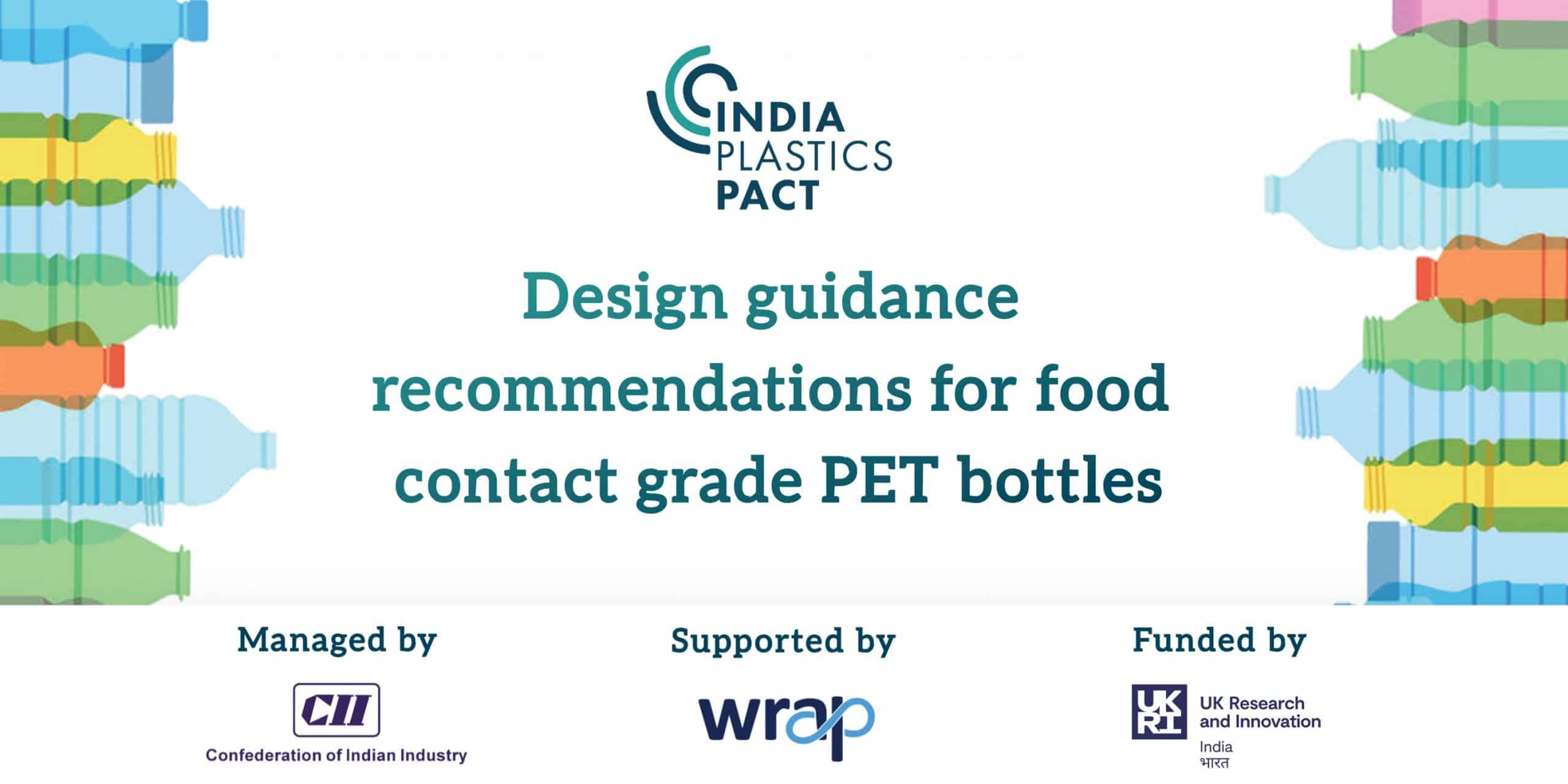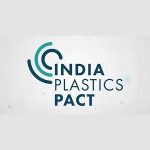Polyethylene terephthalate (PET) is the most widely used material in the manufacture of rigid packaging containers, especially for packaging applications in food and beverage industries worldwide.PET is preferred for its clarity and superior barrier properties in comparison to high density polyethylene (HDPE) or Polypropylene (PP). In India, the use of PET for rigid packaging applications, rose from 0.9 million tonnes in 2018-2019 to 1.08 million tonnes in 2021, and is mostly used to make rigid containers for beverages.
To know more about the use of PET in packaging applications in India, read our report on the “Material flow of PET used in Packaging applications in India: for the year 2021-22”.
Until recently, in India, the use of recycled plastics for food contact material (FCM) was banned by the Bureau of Indian Standards (BIS) and the Food Safety and Standards Authority of India (FSSAI). But in 2021, the Ministry of Environment, Forest, and Climate Change (MoEFCC), allowed the use of recycled content in food-contact packaging. Subsequently, an amendment was made to the Food Safety and Standards (Packaging) Regulations in January 2022, allowing the use of recycled plastic in PET beverage bottles. This was supported by the fact that in India, the collection and recycling system for PET beverage bottles is robust.
The lift of the ban has caused a surge in the interest for a closed loop bottle-to-bottle recycling system for PET. Given the widespread use of PET in the Indian market, it was opportune for information about designing packaging for closed-loop recycling to be published. The India Plastics Pact brought out a design guide, “Design guidance recommendations for food contact grade PET bottles” to encourage upstream design changes supporting bottle-to-bottle recycling within the Indian context.
This guidance can be used by resin converters, bottlers, bottle cap and label manufacturers, and fast-moving consumer goods companiesto review existing PET bottled product lines (SKUs) to identify points of change so as to improve recyclability mindful of ground realities in our country.
The Pact is in the process of developing similar design guidance for other polymersand packaging formats to provide signatories and other packaging manufacturers with the correct technical knowledge to encourage designing for a circular economy.
Keep an eye out on www.indiaplasticspact.org to know more about the Pact, its activities, new launches, and learn about the progress made through the Pact.
The Confederation of Indian Industry (CII) works to create and sustain an environment conducive to the development of India, partnering Industry, Government, and civil society, through advisory and consultative processes. For more than 125 years, CII has been engaged in shaping India’s development journey and works proactively on transforming Indian Industry’s engagement in national development. CII engages closely with Government on policy issues and interfaces with thought leaders to enhance efficiency, competitiveness and business opportunities for Industry through a wide portfolio of specialized services and strategic global linkages.
The India Plastics Pact is a collaboration between the Confederation of Indian Industry (CII) and WWF India that unites businesses, governments, NGOs and citizens to create a circular plastics economy in India. The CII-ITC Centre of Excellence for Sustainable Development (CESD) anchors the India Plastics Pact, within CII. The initiative is supported by WRAP, a global NGO based in the UK. Launched in September 2021, the India Plastics Pact is the first Plastics Pact in Asia. As of June 2022, there are 13 Plastics Pacts spread across the globe. 42 organizations are currently part of the India Plastics Pact. The Pact works on all plastic resins at all stages of the plastics value chain.



